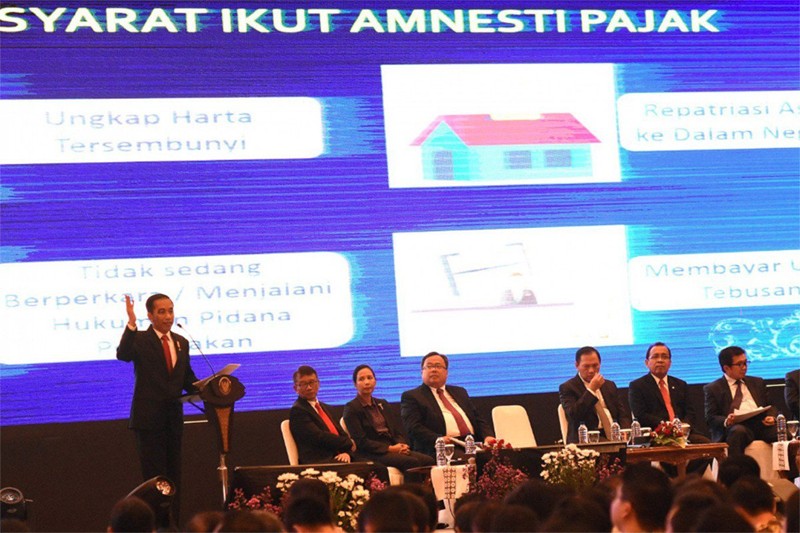Popular Reads
Top Results
Can't find what you're looking for?
View all search resultsPopular Reads
Top Results
Can't find what you're looking for?
View all search resultsSmall taxpayers left confused
Change text size
Gift Premium Articles
to Anyone
P
ensioner Elyzabeth, 63, annually pays taxes for her car and a 0.25-hectare plot of land, but she has not declared both assets on her tax returns form (SPT).
When she heard about the government’s ongoing tax amnesty program, she was curious about how her case could be resolved. She went to the Pulogadung Tax Office in East Jakarta, only to find herself more confused.
“I was told by a tax officer it’s up to me whether to join the tax amnesty or just simply correct my tax reports,” Elyzabeth said, fearing she will be double taxed over the amnesty penalty.
Many small taxpayers are unaware that they do not need to apply for a tax amnesty and pay the penalty rate of 2 to 10 percent of the value of declared assets, when they have paid their taxes accordingly. They simply need to correct their SPTs and include their previously undeclared assets.
However, most tax officers around the country have been answering taxpayers’ questions based on the Tax Amnesty Law, while there is a wider General Taxation System (KUP) Law that regulates asset declaration and payments overall, said Center for Indonesia Taxation Analysis (CITA) executive director Yustinus Prastowo.
“One thing that is not conveyed to taxpayers is that they can correct their tax returns by adding previously undeclared assets without paying any penalty,” he added. “But the SPT correction scheme is not included in the Tax Amnesty Law, it is in the KUP Law. This is not the mistake of tax officers – they just don’t give the full information to taxpayers.”
A couple of months into the tax amnesty program, the government is deploying all possible strategies to make the program a success, including through educational events at residential complexes and by leapfrogging from city to city to disseminate information about the law.
Tax officials nationwide have been overwhelmed by the two distinct tasks they have to undertake: achieving this year’s high collection target while at the same time making the public understand the tax amnesty program clearly, Finance Minister Sri Mulyani Indrawati has acknowledged.
Tax officials are accustomed to collecting taxes while now they’re supposed to explain amnesty procedures to taxpayers, something Sri Mulyani said required different “memory muscles”.
“Ideally, tax reform should come before a tax amnesty. But this hasn’t happened. Hence, we’re accelerating tax reforms as quickly as possible while upholding the morale of tax officials. But at the same time, they have a very specific target,” she told lawmakers during a hearing session last week.
It is hoped that the tax amnesty program, which will run until next March, will see Rp 4 quadrillion (US$301.5 billion) worth of assets being declared, a quarter of which is expected to be repatriated from overseas, with Rp 165 trillion in penalty payments targeted.
Latest data shows that Rp 103 trillion assets have been declared in the program, with penalty payments of Rp 2.14 trillion reaching only 1.3 percent of the target.
The program was initially believed to be aimed at wealthy Indonesians who have stashed their assets overseas, although another main goal is to broaden the nation’s historically low tax base.
Now it has created concerns among small taxpayers who feel “targeted” by the program. An online petition filed at change.org and signed by over 3,500 supporters has demanded the government stick to its initial track.
“Within some public dissemination events, it seems as though all taxpayers are directed to join the tax amnesty” while they have the option of simply correcting their tax forms without paying any penalty, wrote a supporter of the petition.
On Twitter, the hashtag #stopbayarpajak [stop paying taxes] has been trending, challenging the amnesty, which is regarded as pardoning tax crimes while victimizing small taxpayers. (mos/vps)










